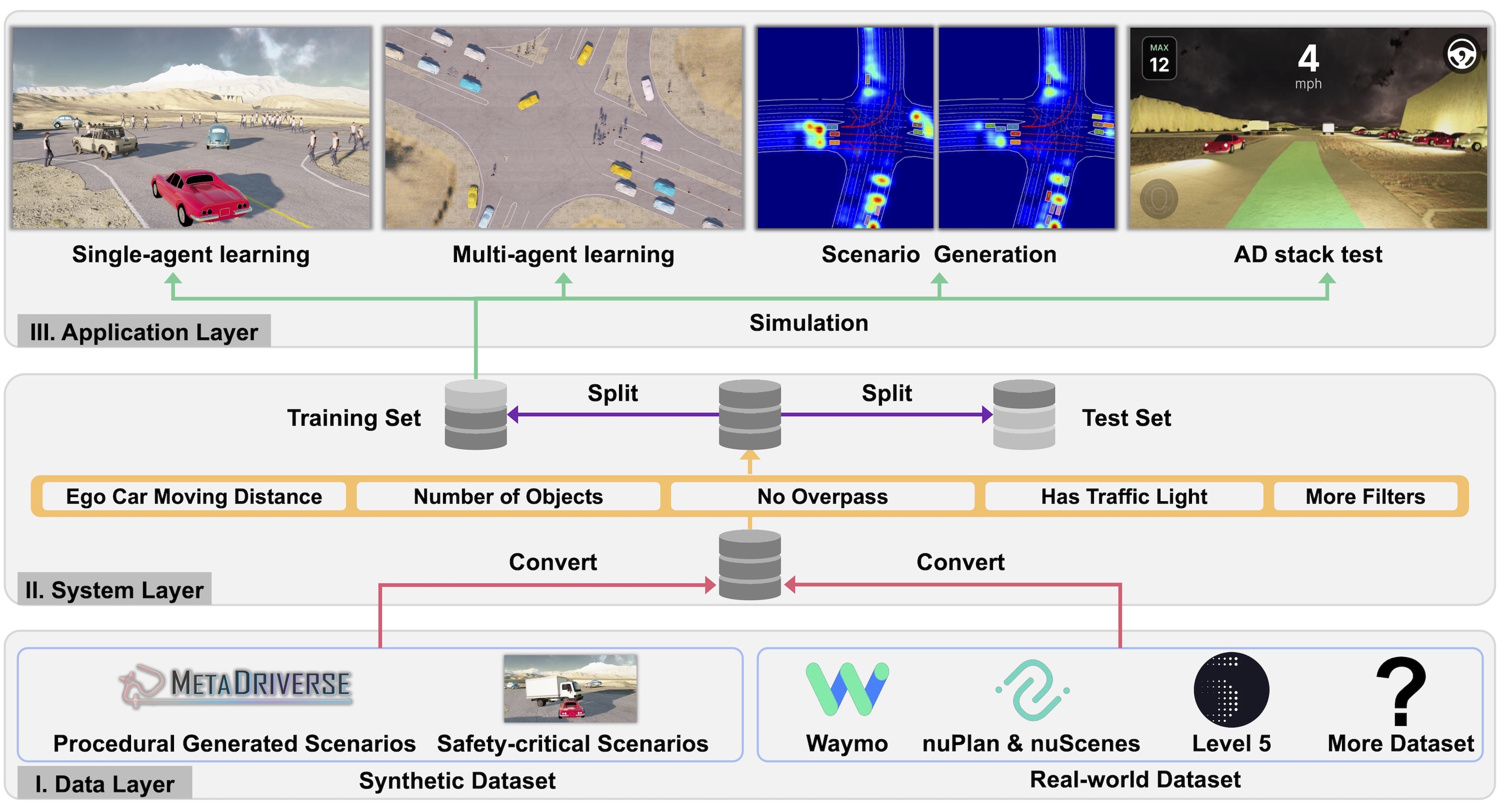ScenarioNet
Open-source platform for large-scale traffic scenario modeling and simulation
From 2022.3 to present. UCLA Prof Bolei-Zhou’s group.
- Latest news: The work has been accept by
NeuralIPS 2023 track on Datasets and Benchmarks! Camera-ready paper will be released shortly.
ScenarioNet is an open-sourced platform for large-scale traffic scenario modeling and simulation.

ScenarioNet consists of the data layer, system layer, and application layer. Various datasets are unified into an internal scenario description. The system layer then provides a set of tools to operate on data efficiently, such as filtering, merging, sanity-check, splitting and so on. Once the database is ready, it can be loaded into MetaDrive for large-scale simulation and supports applications.